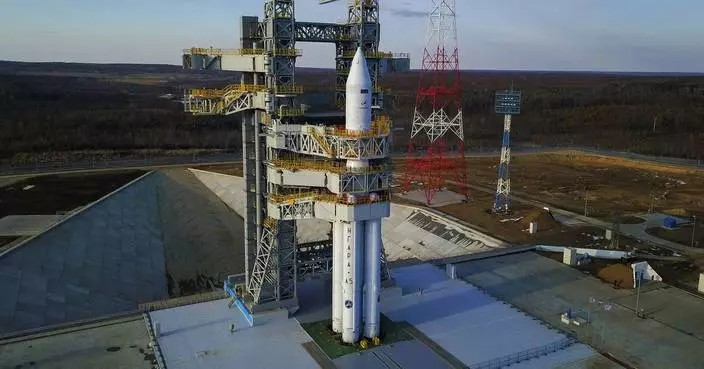Jeff Bezos' Blue Origin rocket company shot a capsule higher into space Wednesday than it's ever done before.
The New Shepard rocket blasted off from West Texas on the company's latest test flight. Once the booster separated, the capsule's escape motor fired, lifting the spacecraft to an altitude of 389,846 feet. That's 74 miles or 119 kilometers.
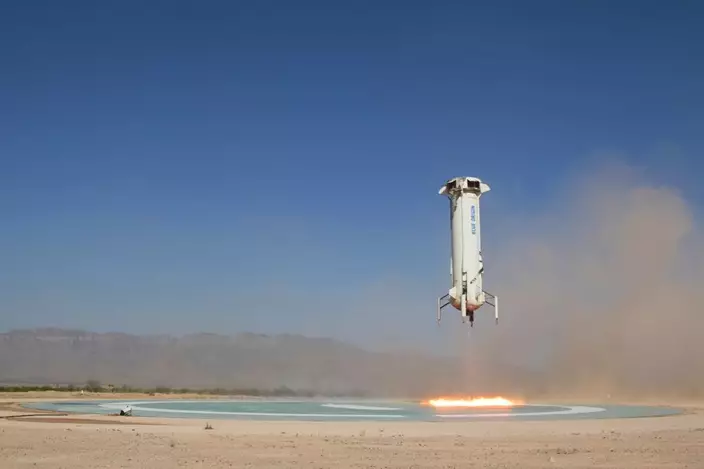
In this photo provided by Blue Origin, The booster of the New Shepard rocket prepares to land in a project called Mission 9 (M9) in western Texas on Wednesday, July 18, 2018. Jeff Bezos' Blue Origin rocket company shot a capsule higher into space Wednesday than it's ever done before. (Blue Origina via AP)
It's part of a safety system intended to save lives once space tourists and others climb aboard for suborbital hops.
Wednesday's passenger was Mannequin Skywalker, an instrumented dummy in a blue flight suit that's flown before, plus science experiments.
The booster and capsule — both repeat fliers — landed successfully. It was the ninth test flight and lasted 11 minutes.
"Crew Capsule looks great even after it was pushed hard by the escape test. Astronauts would have had an exhilarating ride and safe landing," Bezos said in a tweet . "Great engineering and the lucky boots worked again."
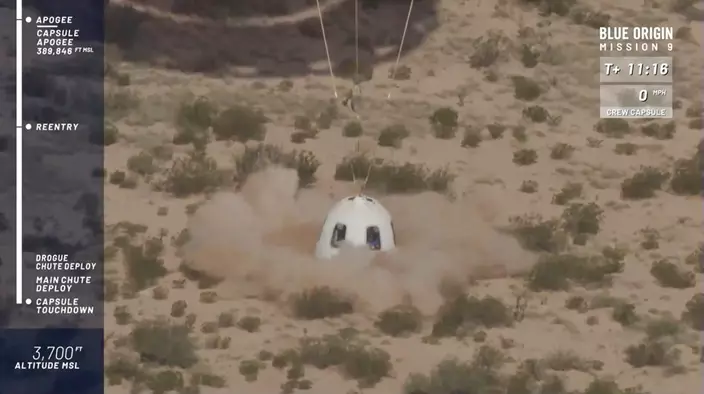
In this image from video made available by Blue Origin, the company's New Shepard capsule lands during a test in West Texas on Wednesday, July 18, 2018. Once its booster separated, the capsule’s escape motor fired, lifting the spacecraft to 74 miles (119 kilometers) as part of a safety system intended to save lives once customers _ including space tourists _ climb aboard for suborbital hops. (Blue Origin via AP)
Blue Origin has yet to announce when it will start selling tickets or how much flights will cost. Launch commentator Ariane Cornell promised it would be soon. "It's coming," she said.
Bezos, founder and chief executive of Amazon, aims to send people and payloads into orbit from Cape Canaveral. Those missions will rely on the bigger, more powerful New Glenn rocket still under development.
He's named his rockets after NASA's original Mercury astronauts Alan Shepard, the first American in space, and John Glenn, the first American to orbit the Earth.
MOSCOW (AP) — Russia on Thursday successfully test-launched a new heavy-lift rocket from its Far Eastern space complex, a lift-off that comes after two aborted attempts earlier this week.
The first attempt to launch the Angara-A5 rocket from the Vostochny spaceport on Tuesday was canceled about two minutes before the scheduled liftoff due to a failure of the pressurization system of the oxidizer tank in the central block of the rocket.
The second attempted launch Wednesday was also aborted by the automatic safety system, which registered a flaw in the engine start control mechanism, said Yuri Borisov, head of Russia’s state-controlled space corporation Roscosmos. He added that the failure was most likely rooted in a programming error.
Thursday's launch is the fourth for the Angara-A5, a heavy-lift version of the new Angara family of rockets that has been developed to replace the Soviet-designed Proton rockets.
The previous three launches were carried out from the Plesetsk launchpad in northwestern Russia.
After the 1991 breakup of the Soviet Union, Russia leased the Baikonur Cosmodrome from Kazakhstan and continued to use it for most of its space launches. The agreement with Kazakhstan allows Russia to keep leasing Baikonur for $115 million a year through 2050.
While Roscosmos has continued to rely on Baikonur, Russian authorities have developed Vostochny as the facility of choice for Angara launches. The construction of the new spaceport has dragged on for longer than planned and it has seen only limited use so far.
The development of the Angara-A-5, which is set to be the main launch vehicle for Russia’s prospective lunar research program, has also faced repeated delays and dragged on years behind schedule.
Like the Soviet-designed Proton it’s set to replace, the new rocket is intended to launch intelligence and communication satellites to geostationary orbits.
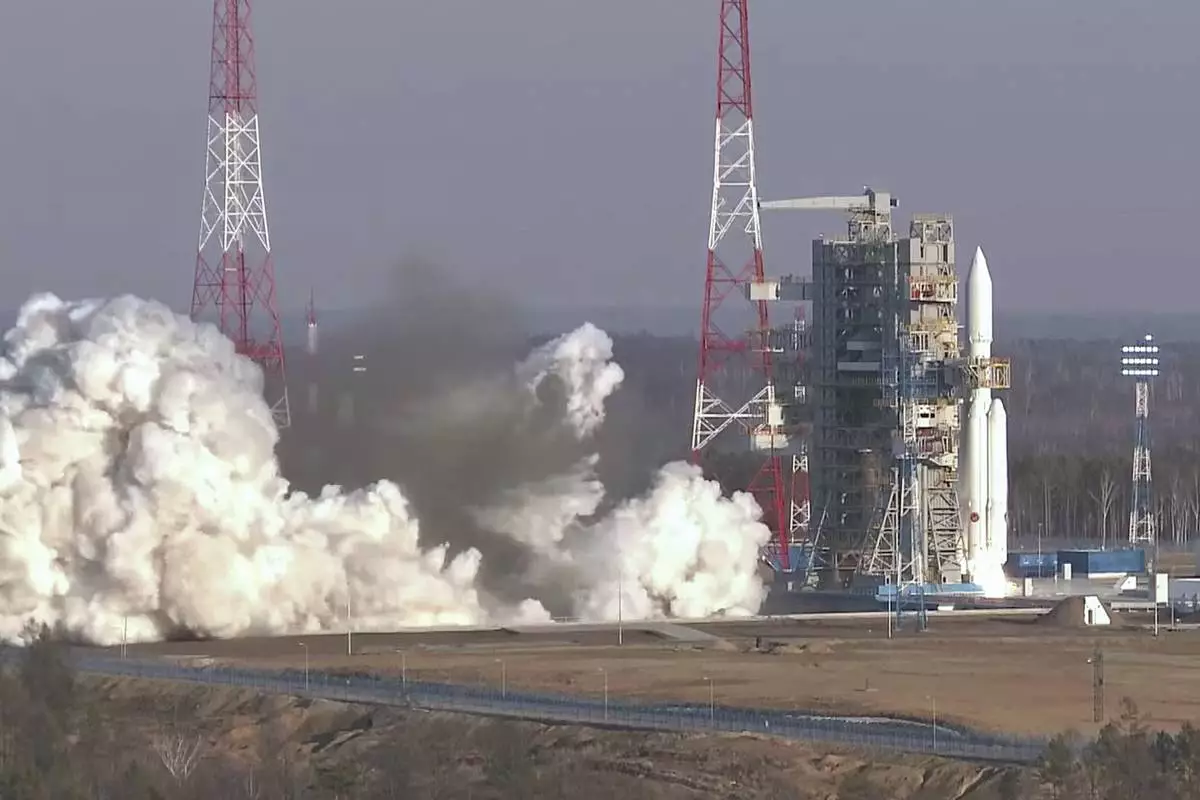
In this grab taken from video released by Roscosmos space corporation on Thursday, April 11, 2024 an Angara-A5 rocket lifts off from Vostochny space launch facility outside the city of Tsiolkovsky, about 200 kilometers (125 miles) from the city of Blagoveshchensk in the far eastern Amur region, Russia. Russia on Thursday successfully test-launched a new heavy-lift rocket from its Far Eastern space complex, a lift-off that comes after two aborted attempts earlier in the week. (Roscosmos Space Corporation via AP)
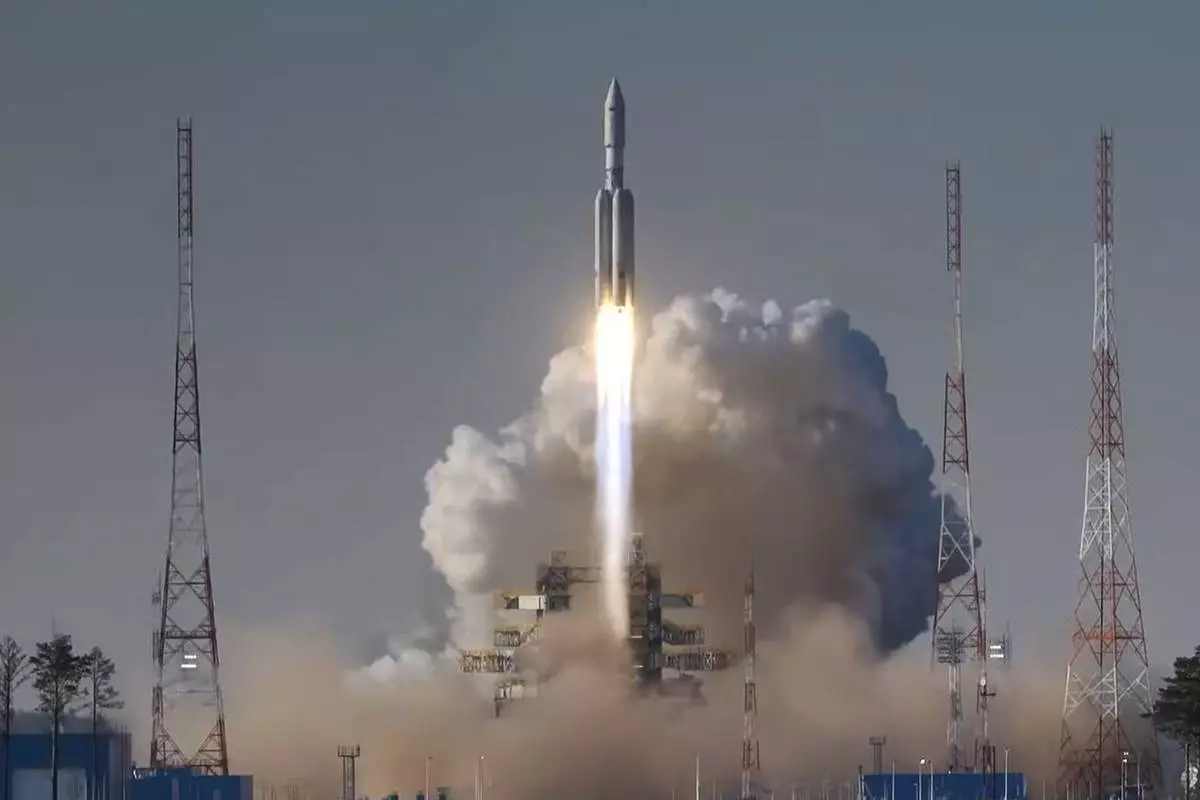
In this grab taken from video released by the Roscosmos space corporation on Thursday, April 11, 2024 an Angara-A5 rocket lifts off from Vostochny space launch facility outside the city of Tsiolkovsky, about 200 kilometers (125 miles) from the city of Blagoveshchensk in the far eastern Amur region, Russia. Russia on Thursday successfully test-launched a new heavy-lift rocket from its Far Eastern space complex, a lift-off that comes after two aborted attempts earlier this week. (Roscosmos Space Corporation via AP)
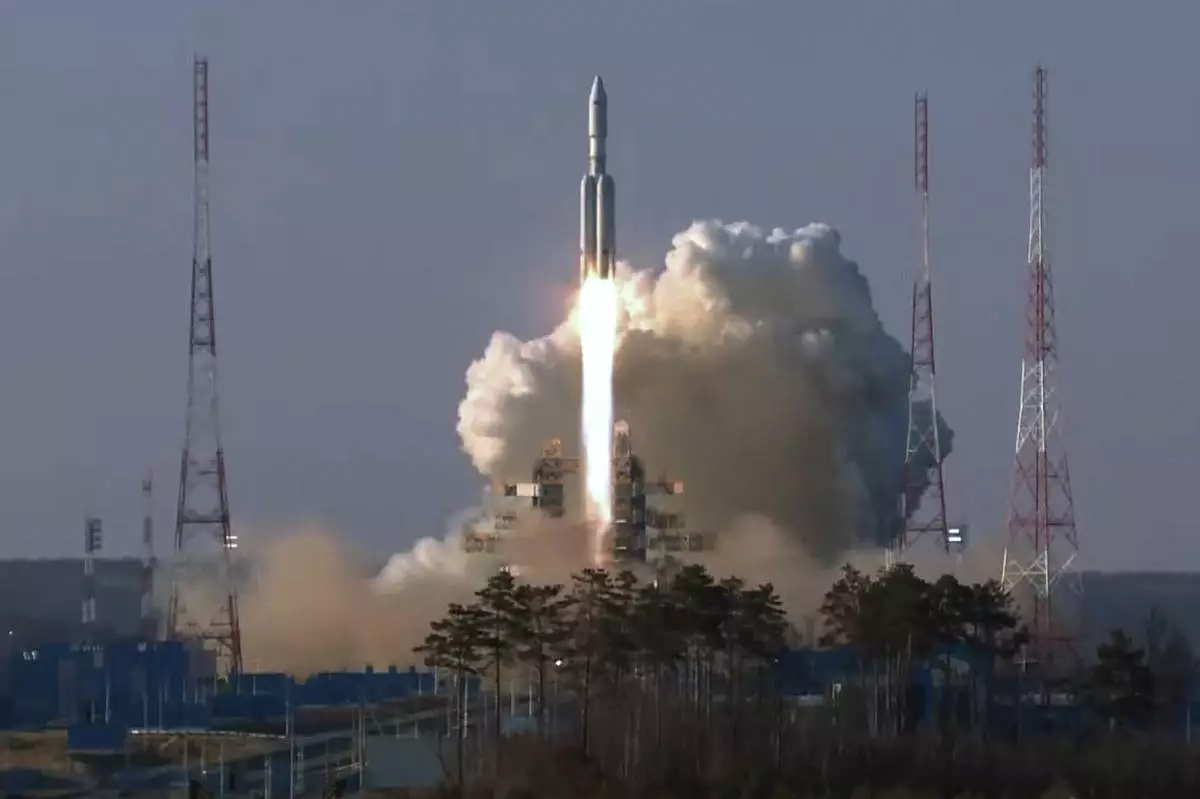
In this grab taken from video released by Roscosmos space corporation on Thursday, April 11, 2024 an Angara-A5 rocket lifts off from Vostochny space launch facility outside the city of Tsiolkovsky, about 200 kilometers (125 miles) from the city of Blagoveshchensk in the far eastern Amur region, Russia. Russia on Thursday successfully test-launched a new heavy-lift rocket from its Far Eastern space complex, a lift-off that comes after two aborted attempts earlier in themweek. (Roscosmos Space Corporation via AP)








